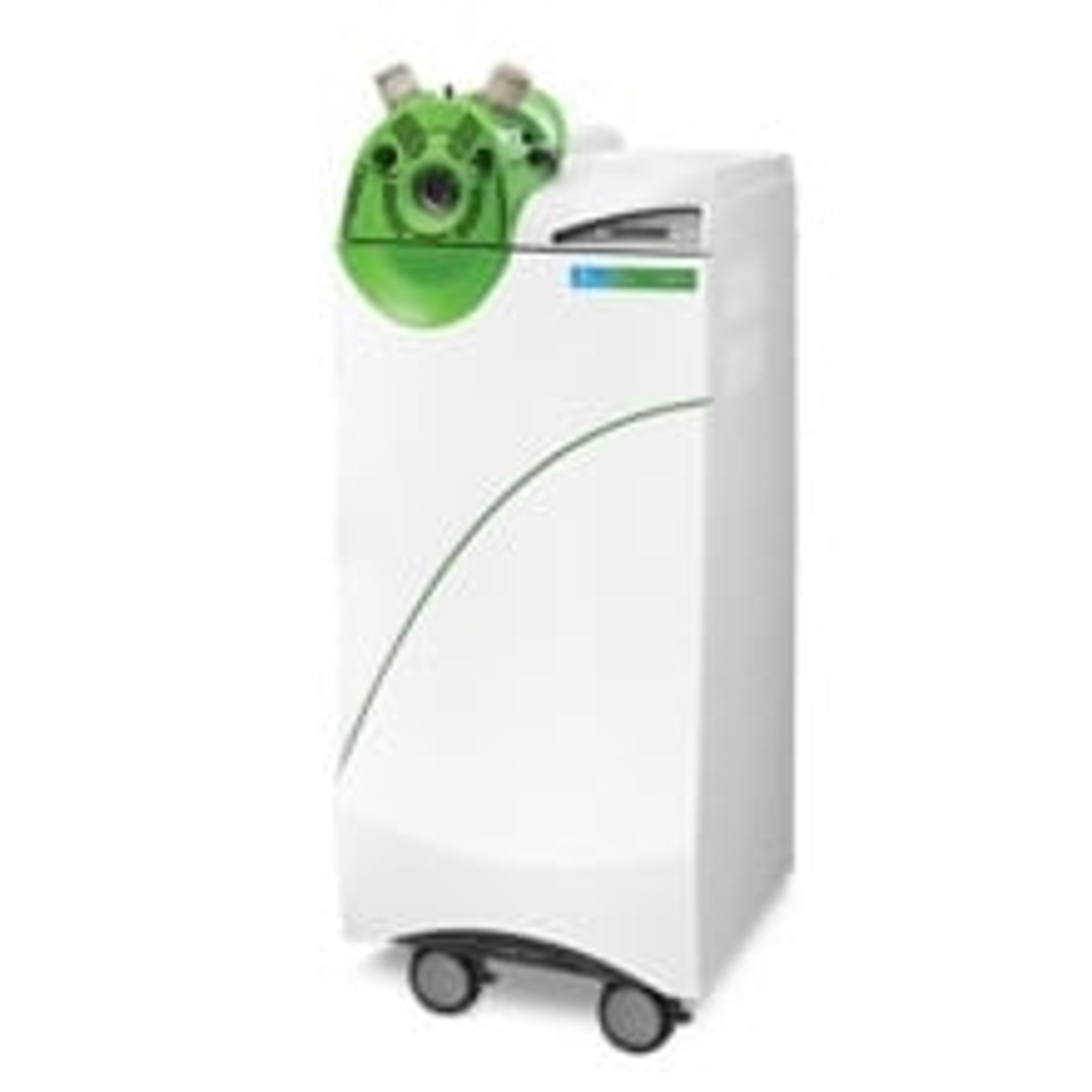Validation of anti-COVID-19 drugs using the diagnostic tools of the future
Find out how LC-MS technology is being used to quantify the experimental drug remdesivir
23 Jul 2020

Remdesivir is an experimental, broad-spectrum, antiviral medication that has shown in vitro and in vivo activity in animal models against Middle East respiratory syndrome (MERS) and severe acute respiratory syndrome (SARS). Most recently, the drug has been researched for potential activity against COVID-19.
In this expert article, we speak with Prof. Antonio D'Avolio, associate professor of pharmacology at the University of Turin and head of the Laboratory of Clinical Pharmacology and Pharmacogenetics of the Amedeo di Savoia Hospital, reference hospital of infectious diseases for the Piedmont region, Italy. Here, D'Avolio explains what he sees for the future of LC-MS in clinical diagnostics.
Your lab was extremely involved in the COVID-19 emergency, how did you help manage this?
AD: It was a very difficult period, especially between March and May 2020. We were surprised at the number of sick people who requested hospitalization. As a pharmacology laboratory we were involved on three fronts: routine therapeutic drug monitoring, activity linked to COVID-19 clinical studies, and support to the microbiology laboratory in processing patient swabs.
How do you apply LC-MS and what are your experienced benefits of using QSight LC/MS/MS™?
AD: LC-MS technology is rapidly becoming the gold standard for quantification of drugs as it provides the capability to simultaneously quantify multiple pharmacological molecules that may be present in patient biological fluids. As a pharmacology laboratory, we now mainly use LC-MS technology and have been one of the first labs in Europe trusting in the QSight LC/MS/MS™ system. We appreciated the robustness and the reliability of the system when working with complex matrices such as plasma and urine, as well as the easy-to-use Simplicity 3Q software that allows you to completely control the workflow using just four modules. An important example of our application of LC-MS technology is in antiretroviral therapy, for which we are a reference laboratory worldwide. Through this technology, we can perform the simultaneous measurement of all drug intake by a patient, whilst allowing faster analyses with higher specificity to ensure a rapid answer.
Tell us about the role of LC-MS in the development of the anti-COVID-19 drug, remdesivir?
AD: Remdesivir (RDV) was recently approved as the first anti-COVID-19 drug. It is a diastereomeric monophosphoramidate prodrug of an adenine nucleotide analogue GS-441524. Inside cells, the GS-441524 monophosphate undergoes conversion to the pharmacologically active nucleoside triphosphate form, which is able to inhibit the viral RNA-dependent RNA-polymerase. RDV has shown broad-spectrum antiviral activity with a proven in vitro and in vivo (on animal models) efficacy against different RNA viruses.
Our lab was the first to publish an analytical method to quantify remdesivir and its metabolite in human plasma samples using the QSight LC/MS/MS™. We were working on an international, experimental project for anti-Ebola therapy, where remdesivir is one of the therapeutic options that can be used to treat patients. We accelerated this project in order to validate the developed method, as quickly as possible, for the application to COVID-19. The LC-MS method, using a PerkinElmer LX50 UHPLC system coupled with QSight 220 Triple Quadrupole, allowed us to significantly and specifically quantify the metabolite GS-441524, which could be a good marker that correlates well with the efficacy or toxicity of the prodrug remdesivir. In this work, the LX50 and QSight helped us to shorten and simplify the workflow, we performed rapid analysis using only a very small amount of plasma, requiring only 50 μl of sample. The result was a wide detection range of up to 3000 ng/ml.
How do you overcome the associated challenges of using LC-MS?
AD: The challenges in using LC-MS are always the same: the matrix effect, ionization of the molecules, a good chromatographic separation, and the uncertainty of achieving the correct quantification of the molecules or drugs. In addition, when we started working on remdesivir, the deuterated internal standards were not available on the market. This issue forced us to use alternative molecules and apply the normalized matrix effect. Despite these problems, we worked towards our first aim of achieving a good chromatographic separation and a good recovery, with an extremely simple extraction method; this is a fundamental consideration when purchasing an instrument. In this context, we appreciated the higher uptime due to the low susceptibility of the source to dirty matrices like plasma. Thanks to StayClean Technology™ we never had the need to stop the instrument for source cleaning operations during the trial.
How do you see LC-MS evolving for diagnostic applications?
AD: I believe that mass spectrometers coupled with liquid chromatography (LC-MS) will be the diagnostic tools of the future, and not only for drug quantification. There is the need to combine LC-MS with other instruments such as liquid handlers for cleaning the sample, speeding up the pre-analytical steps, and improving accuracy. Instrumental ‘robustness’ is required for all the components that make up the instrument, such as the chromatograph and even the nitrogen generator. In the clinical laboratory, a mass spectrometer system needs to be seen as a unique “organism” for which all the components work in “metabolic” synchrony and efficiency to ensure the required performance. In addition, the software interface and analytical management platform must be easy to use. Currently, all these factors greatly limit the expansion of this technology in all laboratories, but we can see companies like PerkinElmer are working on addressing these factors. One of our next projects is aimed at efficiently integrating automation workflows in LC-MS-based analysis, from sample preparation to data analysis and reporting. Here is where we appreciate the support of an international organization like PerkinElmer. We'll see what the future holds for us – let's hope without COVID-19!
Do you use PerkinElmer products in your lab? Write a review today for your chance to win a $400 Amazon gift card>>

